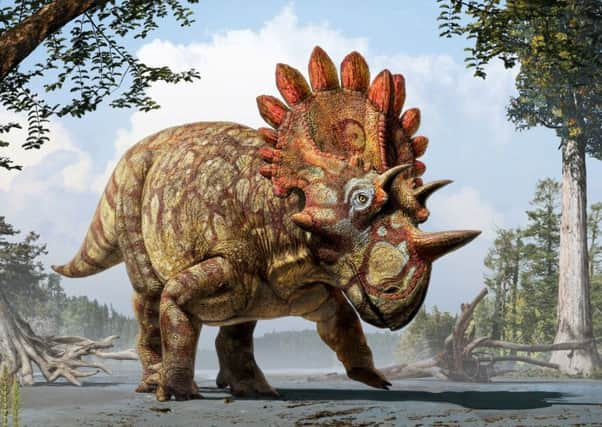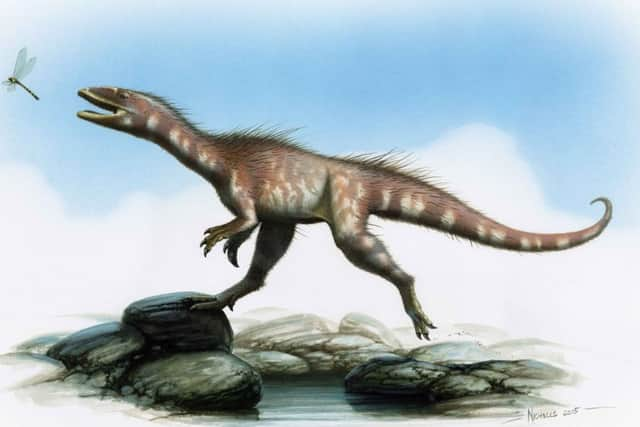New theory on mass extinction events by Leeds-based scientist says dinosaurs ‘fluked’ becoming dominant species


Widespread species are at just as high risk of being wiped out as rare ones after global mass extinction events, says new research by Leeds-based scientists.
There have been five mass extinction events in the Earth’s history, including climate change caused by volcanoes and an asteroid hit that wiped out the dinosaurs.
Advertisement
Hide AdAdvertisement
Hide AdIn general, geographically widespread animals are less likely to become extinct than animals with smaller geographic ranges, offering insurance against regional environmental catastrophes.


However, a study published in Nature Communications has found this insurance is rendered useless during global mass extinction events, and that widely distributed animals are just as likely to suffer extinction as those that are less widespread.
The research by Dr Alex Dunhill, from the School of Earth and Environment at the University of Leeds, and Professor Matthew Wills from the University of Bath’s Milner Centre for Evolution, explored the fossil record of terrestrial (land-living) vertebrates (including dinosaurs) from the Triassic and Jurassic periods (252-145 million years ago).
They found that although large geographic ranges do offer insurance against extinction, this insurance disappeared across a mass extinction event that occurred around 200 million years ago (at the Triassic-Jurassic boundary) associated with massive volcanic eruptions and rapid climate change which caused the demise of around 80 per cent of species on the planet.
Advertisement
Hide Ad